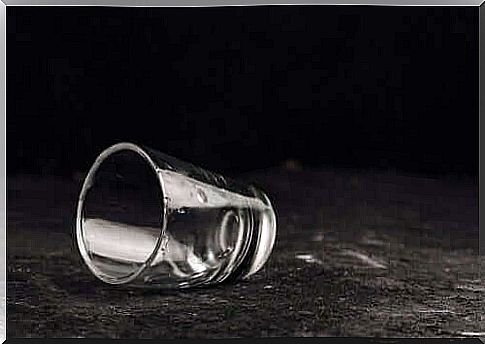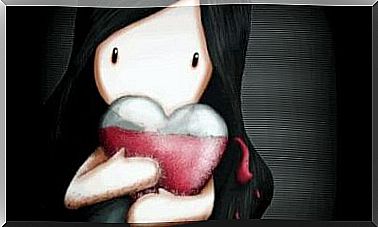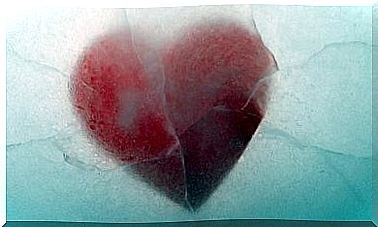The Relapse Process Of Alcoholism

Alcoholism is one of the most common addictions in society and it has a high rate of relapse. Therefore, much of the treatment is aimed at preventing it. According to a study carried out by the Alcohology Unit of the Barcelona Clinic, 40% of patients have not relapsed 10 years after the start of treatment.
Even though relapse into alcoholism is a common reality, it is important to know that it is a relatively normal process and, most importantly, one that can be overcome. In addition, there are many factors that can lead to a relapse.
This is because a person who suffers from alcoholism usually relapses more than once until they are able to break the habit for good. As a general rule, achieving long-term sobriety requires high personal effort, mistakes, and surpassing oneself.
Here are some realities of alcoholism and relapse:
- Resumption of unhealthy behavioral habits that characterized the previous addiction period.
- The negative consequences of these habits do not take long to manifest.
- Decrease and abandonment of activities related to detoxification or rehabilitation.
- An isolated episode of alcohol consumption should not, by itself, be considered a relapse. In clinical practice, it is generally considered negligence.
- It is quite possible to slip away and not relapse. However, it is also possible to relapse without having made a deviation before.

The relapse of alcoholism and its emotional components
In the field of clinical psychology, it is accepted that relapses are closely related to the experience of negative emotions and interpersonal conflicts. However, sometimes relapse into alcohol abuse goes hand in hand with positive emotions. For example, feeling good about yourself, or feeling a certain festive spirit.
Sometimes exposure to situations or contexts in which alcohol has been consumed in the past can be a powerful trigger for addiction. Therefore, it is essential to identify these triggers, these signals, which indicate a danger, in order to put in place adequate strategies to deal with it.
Warning signs
Relapse can occur at any time during the recovery process. Indeed, within the general population, the people most exposed to the risk of relapse are those who are immersed in a process of addiction. It can be said that the most sensitive situations in this regard are the following:
- Be in the initial stages of a rehabilitation process after an addiction.
- Being in the immediate wake of a traumatic event.
- Go through episodes of vital transition.
In addition, it should be mentioned that relatives, friends or partners of the alcohol dependent person generally appreciate the benefits of giving up this habit. However, even if the person takes steps to lead a healthier life, the risk of relapse is still very present.
If relapse occurs, the decline is usually quickly evident. In addition, relatives, friends and healthcare professionals should watch for warning signs. These are the following:
- Decreased optimism
- Increase in general discomfort
- Tendency to make up excuses
- Negligence in personal care
- The person often talks about their lack of alcohol
- Secret behavior
- Unhealthy eating habits
- Tendency to social isolation
- Attendance of people addicted to alcohol
- Signs of anxiety and / or depression
- Failure to respect appointments or scheduled therapy sessions
Stages of relapse in alcoholism
Here are three consecutive steps that can lead to relapse. The first two are generally less risky because they only involve a certain distance from the recovery trend. The third and last almost always involves a complete relapse.
Emotional relapse
It is characterized, at the psychological level, by a certain suppression of emotions and the tendency to interpersonal isolation. It is also quite typical for the person to blame others for their difficulties in carrying out a rehabilitation process.
Mental relapse
This stage is associated with feelings of abstinence as well as a strong need to resume the habit. The person tends to think almost obsessively about the triggers for alcohol consumption. Even lie or consciously plan the relapse.
Physical relapse
It involves suffering from more than one misstep. Then to fall again into the obsession with consuming alcohol and the compulsive desire to abuse it.

What are the causes ?
It is widely accepted in the scientific field that there are genetic characteristics, and therefore hereditary, which can predispose an individual to develop addictions. In this case, each excessive consumption can give rise to specific cerebral adaptations which lead the brain to request permanent consumption.
Usually, relapses occur because of a place, person, or object that reminds the patient of alcohol. When the brain processes this memory, it tends to develop cravings for alcohol. Some common triggers include the following:
- Stress
- The smell of alcohol
- Financial problems
- Interaction with people who drink
- Being in the presence of alcoholic beverages
- The loss of a loved one
- Be in a place where there is alcohol
- Have suffered physical or psychological violence
If there are signs of a relapse or a potential relapse, our recommendation is to seek help from the appropriate services as soon as possible. On the other hand, if it is a relative or a relative who shows these signs, it is important to remain vigilant and to seek advice from a specific professional or a competent service.










